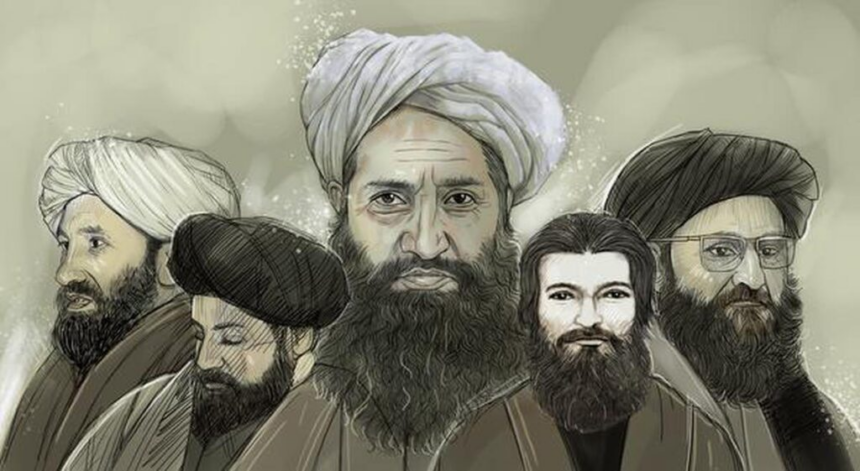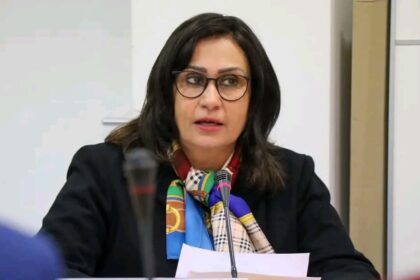RASC News Agency: A new scholarly study has drawn a stark conclusion: the Taliban’s autocratic governance and ideological rigidity have completely blocked Afghanistan’s path toward change, stability, and development, dismantling every institutional framework necessary for progress. The research describes Afghanistan under Taliban rule as “a nation held hostage by dogma and coercion,” where the idea of reform has been rendered “politically and socially impossible.”
The study, authored by Bismillah Taban, a noted Afghan expert on security and political affairs, was presented at an international conference titled “Development and Global Cooperation in the Geopolitical Age: Interdisciplinary Challenges and Complex Agendas Amid Competition and Crisis” held at the Jagiellonian University in Kraków, Poland.
In his presentation, Taban argued that the withdrawal of U.S. forces in 2021 did not end a war it transferred power to a militarized extremist group that lacks administrative competence and moral legitimacy. The Taliban’s ascent, he said, “did not fill a vacuum but deepened it,” accelerating state collapse and opening vast spaces for terrorist networks and illicit economies to thrive unchecked.
Taban emphasized that the Taliban’s governing structure rests on three destructive pillars: the suppression of civil society, the suffocation of personal and media freedoms, and the monopolization of power by unaccountable armed factions. “This is not governance,” he declared. “It is domination through fear, designed to prevent the emergence of any alternative voice or legitimate political process.”
The study describes the Taliban’s so-called administration as a regime without a state a coercive apparatus sustained by violence rather than consent. Taban writes that “the Taliban’s governance model rejects the very essence of a state institutions, accountability, and rule of law replacing them with obedience to ideology and fear of punishment.” The result, he notes, is a hollow state unable to deliver services, protect citizens, or engage responsibly with the international system.
According to the report, no mechanism for legitimate governance currently exists in Afghanistan. What the Taliban present as a “government” functions as a network of coercion an authoritarian militia draped in religious symbolism, using the language of piety to conceal its political bankruptcy. Such a structure, Taban argues, lacks both internal legitimacy and external recognition, leaving Afghanistan isolated, impoverished, and strategically adrift.
The research also highlights the divergent and inconsistent approaches of global powers toward the Taliban. Taban warns that the absence of a coherent international policy has effectively aided the regime’s survival, giving it diplomatic space to consolidate its rule while dismantling every remaining pillar of Afghan civil society. “The world’s fractured approach,” he wrote, “has become the Taliban’s greatest asset a silence that enables repression.”
The study devotes significant attention to the humanitarian and social devastation caused by Taliban policies. Women, in particular, have become the primary victims of the regime’s ideological war. The systematic exclusion of women from schools, universities, and public life has not only destroyed the intellectual fabric of Afghan society but also crippled its economic and social recovery. Taban calls this deliberate exclusion “a state-engineered gender apartheid,” warning that Afghanistan is “collapsing into an abyss of ignorance and despair.”
The study further documents the Taliban’s crackdown on media freedom and their harassment of NGOs and aid organizations, which has halted most community-based development programs. These policies, Taban argues, have pushed Afghanistan into a state of “silent collapse” a condition in which social structures erode gradually, unseen by the outside world but felt deeply within every household.
Speaking at the conference, Taban warned that without a unified and decisive international strategy, Afghanistan risks once again becoming a global epicenter of terrorism. He emphasized that the Taliban’s internal collapse will not remain contained: “A failed Afghanistan under extremist control is not just a tragedy for Afghans; it is a time bomb for regional and global security.”
The conference, held on October 23–24 at Jagiellonian University one of Europe’s oldest and most prestigious institutions brought together academics, policy experts, and researchers from across the world. The event was co-organized by the Asian Political Science Association (APSA), the European Association of Development Research and Training Institutes (EADI), and the Center for International Studies and Development at Jagiellonian University.
The central theme of the conference explored how the intersection of politics, security, and development has been destabilized by global crises, power rivalries, and the erosion of international cooperation. Within that broader debate, Taban’s paper stood out for its unflinching critique of both the Taliban’s domestic repression and the international community’s moral paralysis.
In closing, the study issues a warning of haunting clarity: as long as the Taliban remain in control, Afghanistan will remain suspended in a cycle of stagnation a nation governed by the gun, silenced by fear, and betrayed by the indifference of the world.






